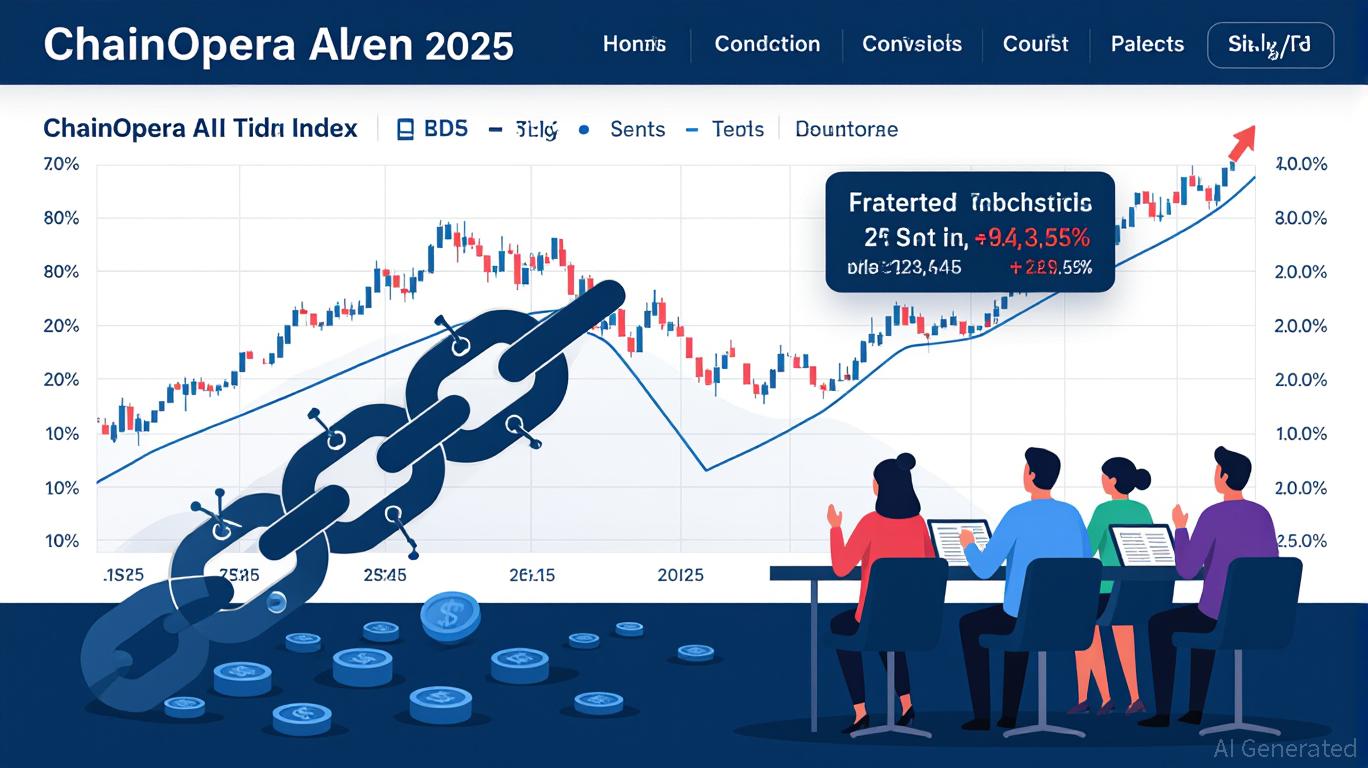Bitcoin Updates: Japan Strives to Foster Crypto Advancements While Ensuring Investor Protection Amid DATs Decline
- Japan Exchange Group (JPX) plans stricter rules for digital-asset treasury (DAT) firms amid volatile stock collapses, including enhanced audits and backdoor listing restrictions. - Metaplanet and Convano, major DATs holding thousands of BTC, have lost over 60% of their value, reflecting global market instability linked to crypto-heavy strategies. - Regulators warn DATs pose risks to retail investors due to reliance on volatile assets, while Japan balances innovation incentives with governance safeguards
The Japan Exchange Group (JPX) is facing mounting calls to curb the swift growth of digital-asset treasury (DAT) firms, as fluctuating stock prices and investor setbacks draw increased regulatory attention. The operator of the Tokyo Stock Exchange is said to be weighing tighter enforcement of backdoor listing regulations and requiring mandatory audits for companies shifting toward significant crypto holdings,
The new regulations would broaden current restrictions on backdoor listings—which let private firms sidestep standard IPO processes by purchasing already-listed companies—to include those changing their main business to crypto.

The measures JPX is considering are in line with a broader trend of caution in the region. While Japan is home to 14 publicly traded
Industry specialists caution that without more robust regulation, DATs could increase market volatility. “The DAT structure depends on highly volatile assets and generates minimal revenue,” one analyst observed,
The ongoing regulatory discussion highlights Japan’s challenge in balancing innovation with investor protection. While DATs initially attracted interest as a hedge against yen depreciation, the sector’s recent troubles have revealed regulatory shortcomings. JPX’s current review could redefine Japan’s position as a leader in corporate crypto adoption, with potential effects on global markets. As the exchange considers its next moves, companies like Metaplanet must navigate both market uncertainty and stricter oversight
Disclaimer: The content of this article solely reflects the author's opinion and does not represent the platform in any capacity. This article is not intended to serve as a reference for making investment decisions.
You may also like
U.S. Debt Fluctuations Surge Amid AI-Driven Borrowing Growth and Fed Faces Fiscal Uncertainty
- U.S. Debt Volatility Index hits one-month high in November, reflecting market anxiety amid government shutdown resolution and fiscal risks. - AI infrastructure debt surges 112% to $25B in 2025, driven by tech giants’ $75B in bonds for GPU/cloud projects, raising overleveraging concerns. - Fed faces mixed signals: October job losses push December rate cut odds to 68%, while gold/silver rise 2-3% as investors seek safe havens amid fiscal/geopolitical risks. - Delayed economic data from shutdown complicates

ChainOpera AI Token Plunge: An Alert for Investors in AI-Based Cryptocurrencies
- ChainOpera AI Index's 54% 2025 collapse exposed systemic risks in AI-driven crypto assets, driven by governance failures, regulatory ambiguity, and technical vulnerabilities. - C3.ai's leadership turmoil and $116.8M loss triggered sell-offs, while the CLARITY Act's vague jurisdictional framework created legal gray areas for AI-based crypto projects. - Model Context Protocol vulnerabilities surged 270% in Q3 2025, highlighting inadequate governance models as 49% of high-severity AI risks remain undetected

Navigating the Dangers of New Cryptocurrency Tokens: Insights Gained from the COAI Token Fraud
- COAI token's 2025 collapse exposed systemic risks in algorithmic stablecoins, centralized governance, and fragmented regulatory frameworks. - xUSD/deUSD stablecoins lost dollar peg during liquidity crisis, while 87.9% token concentration enabled panic selling and manipulation. - Regulatory gaps pre-collapse allowed COAI to exploit loosely regulated markets, but post-crisis reforms like MiCA and GENIUS Act now demand stricter compliance. - Investor sentiment shifted toward transparency, with demand for re

Filecoin (FIL) to Bounce Back? This Emerging MA Fractal Setup Suggests So!
